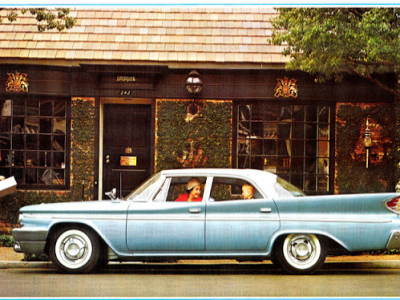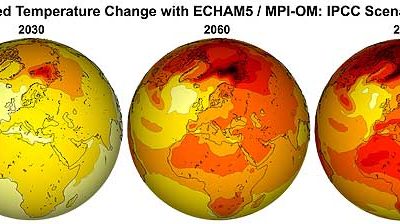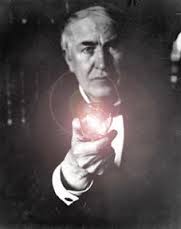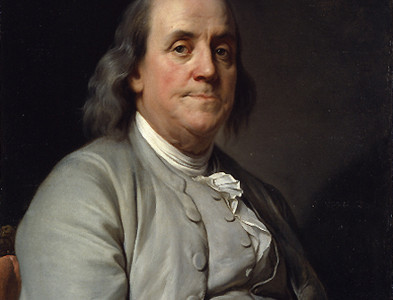Month: January 2014
Emmett Center Files Amicus Brief in U.S. Supreme Court GHG Case on Behalf of South Coast Air District
UCLA’s Emmett Center filed an amicus curiae brief yesterday in Utility Air Regulatory Group (UARG) v. EPA, the U.S. Supreme Court case that will determine whether EPA’s greenhouse gas emissions rules under the Prevention of Significant Deterioration section of the Clean Air Act are valid. Arguing on behalf of the South Coast Air Quality …
CONTINUE READINGCan Los Angeles Reinvent Itself Around Rail?
New op-ed explains key challenges and opportunities
A city famous for its car culture now has three new rail transit projects under construction. Can Los Angeles reinvent itself around rail-oriented development? Passenger vehicle transportation plays a major role in contributing to greenhouse gas emissions. But building more rail, alone, is not enough to get folks off the road and onto public transit. …
Continue reading “Can Los Angeles Reinvent Itself Around Rail?”
CONTINUE READINGClimate Impacts: The Economist’s View
Climate change may damage economies more than previously thought.
The Economist has an important story about climate change impacts. There are two big takeaways, one about growth in developing countries and one about economic repercussions in developed countries like the U.S. It has long been known that climate change will impose costs on developing countries. But there is increasing reason to think that it …
Continue reading “Climate Impacts: The Economist’s View”
CONTINUE READINGCalifornia’s Proposed Drinking Water Program Reorganization: A Primer
What would the shake-up mean for those who currently lack affordable access to safe drinking water?
A shake-up of California’s struggling Drinking Water Program is in the works. What follows is a little history, context, and a few thoughts on what it will likely mean for drinking-water stakeholders—in particular those who have the hardest time accessing safe drinking water. A history of problems for the Drinking Water Program Last April, Jonathan …
Continue reading “California’s Proposed Drinking Water Program Reorganization: A Primer”
CONTINUE READINGLightbulb Wars : The Saga Continues
Republicans win a largely symbolic victory for an obsolete technology.
Among the sleeper provisions of the new budget deal is a ban on enforcing federal lightbulb standards. This is a great example of symbolic politics — it makes Tea Party Republicans happy, has limited practical effect, and makes little policy sense. Or to put it another way, the enforcement ban is a dumb thing to …
Continue reading “Lightbulb Wars : The Saga Continues”
CONTINUE READINGWhat Martin Luther King DIDN’T Say
Issues like the environment and animal rights weren’t on his radar screen.
Since tomorrow is Martin Luther King day, I was curious about whether Dr. King had ever said anything about the environment. When I did a google search, this quotation popped up over and over again: “Never, never be afraid to do what’s right, especially if the well-being of a person or animal is at stake. …
Continue reading “What Martin Luther King DIDN’T Say”
CONTINUE READINGNewsflash: Not All Climate Stories are Dismal, Scientists Actually Try to Discover the Truth
Methane Leaks Not Caused by Human-induced Climate Change,
NPR aired a story this week about what scientists thought, in 2008, were ominous signs of a warming ocean. Churning bubbles of methane — a very potent greenhouse gas — were pouring out of the ocean floor in Arctic Norway. Scientists theorized that as the globe and the oceans warmed, the methane trapped in the …
CONTINUE READINGAn Ounce of Prevention
Can inherently safer technology save us from chemical accidents and terrorists?
As Benjamin Franklin famously said, “an ounce of prevention is worth a pound of cure.” Franklin’s comment, originally made in reference to home fire safety, is characteristically timeless. Today, many are looking to the principle of prevention as a way to reduce the incidence and severity of chemical plant disasters. The threat of chemical disaster …
Continue reading “An Ounce of Prevention”
CONTINUE READINGWhen Cooking Can Kill
Cookstoves are a major threat to health in developing countries, while also wreaking environmental damage.
Cooking dinner, as it turns out, is one of the most serious public health and environmental problems in the world. There’s a common misperception that environmental concerns are just a First World luxury. But the cookstove example shows that the global poor, too, are in need of better, more efficient, less polluting energy sources. Here …
Continue reading “When Cooking Can Kill”
CONTINUE READINGThe ballot-box and urban infill
How the initiative power affects land-use decisions in California
Here at Legal Planet we’ve been paying a lot of attention to how CEQA affects land-use decisions. So has the legislature. And that’s fair enough. CEQA is important. And CEQA may well be deterring an important range of urban infill development that is environmentally important. But it’s not the only thing that affects urban infill …
Continue reading “The ballot-box and urban infill”
CONTINUE READING












